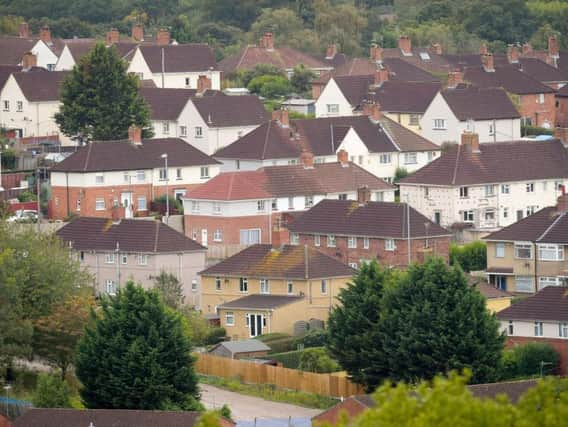Rural homelessness rises 85 per cent in a year


Nationally, homelessness has seen a significant increase over the past year, rising by 45 per cent from 79,715 homeless households in 2018 to 116,001 households in 2019, according to figures released yesterday by the Ministry of Housing, Communities and Local Government.
Advertisement
Hide AdAdvertisement
Hide AdOne tenth of this was in Yorkshire, where 11,660 people were homeless between April 2018 and March 2019.
Rural communities have experienced a surge in homelessness almost twice the national increase, rising from 9,312 to 17,212 over the past year, according to the Campaign to Protect Rural England (CPRE), which analysed the data.
Even areas that are considered affluent and rural had significant homelessness. For example, in Richmondshire, nearly 100 people were homeless last year.
A failure by successive governments to address housing issues that are specific to rural areas, combined with a wider lack of funding for social housebuilding had created a perfect storm that resulted in this hidden housing crisis, the charity said.
Advertisement
Hide AdAdvertisement
Hide AdThe CPRE highlighted the often overlooked consequences of becoming homeless in a market town or village – where support services for those in need tend to be fewer and further between than in larger urban areas.
Lois Lane, housing campaigner at CPRE, said: “For too long the housing crisis has long been considered an issue affecting only urban areas, but this analysis shows the impact of a long-term failure to rural-proof housing policies on communities living in the countryside.
“The alarming rise in homelessness right across the country is a catastrophic demonstration of how government housing policies have failed society as a whole, and rural areas in particular.
Advertisement
Hide AdAdvertisement
Hide Ad“The government must urgently increase the proportion of housing spending used to fund the construction of social homes for rent, with funding for rural areas ring-fenced in line with the proportion of the population who live there. This is the only way we can stop more families in the countryside from being forced out of their homes.”
Nationally, the figures also show one person becomes homeless every four minutes.
Polly Neate, chief executive at Shelter, said: “During a year where Brexit negotiations have totally dominated the political agenda, catastrophic numbers of people have become homeless. While the housing crisis is out of the spotlight, families with young children are trapped in grim temporary accommodation like B&Bs and shipping containers, and young people feel the damaging effects of growing up in a housing emergency.
“Cripplingly expensive private rents, frozen housing benefits, and lengthy waiting lists for social homes are pushing people to the sharp edge of a housing emergency which won’t go away without genuinely affordable homes.
Advertisement
Hide AdAdvertisement
Hide Ad“The government must invest in a new generation of social homes –three million more in 20 years – if they are to pull hundreds of thousands of people out of homelessness. And in the meantime, they must urgently increase housing benefit so that it covers at least the bottom third of private rents.”
Minister for Homelessness Luke Hall said: "The Homelessness Reduction Act is the most ambitious change to homelessness legislation in decades.”
Referring to that more people are being registered as homeless, he added: "Today's figures show that progress is being made. The Act is helping people earlier so they are not having to experience homelessness in the first place.
Advertisement
Hide AdAdvertisement
Hide Ad"There is still more to do though, which is why we have committed a record investment to ending homelessness and rough sleeping for good.
"This vital funding will ensure progress continues to be made, with people given the help they need to turn their lives around."
Local Government Association (LGA) housing spokesman David Renard said: "A lack of affordable housing has left many councils struggling to cope with a rising number of people coming to them for help and are having to place more families and households into temporary and emergency accommodation as a result.
"Councils also need powers to invest in new homes for those that need them. We need urgent reform to the Right to Buy scheme, which enables councils to keep all sales receipts and set discounts locally.
"Government also needs to adapt welfare reforms to protect families at risk of becoming homeless."